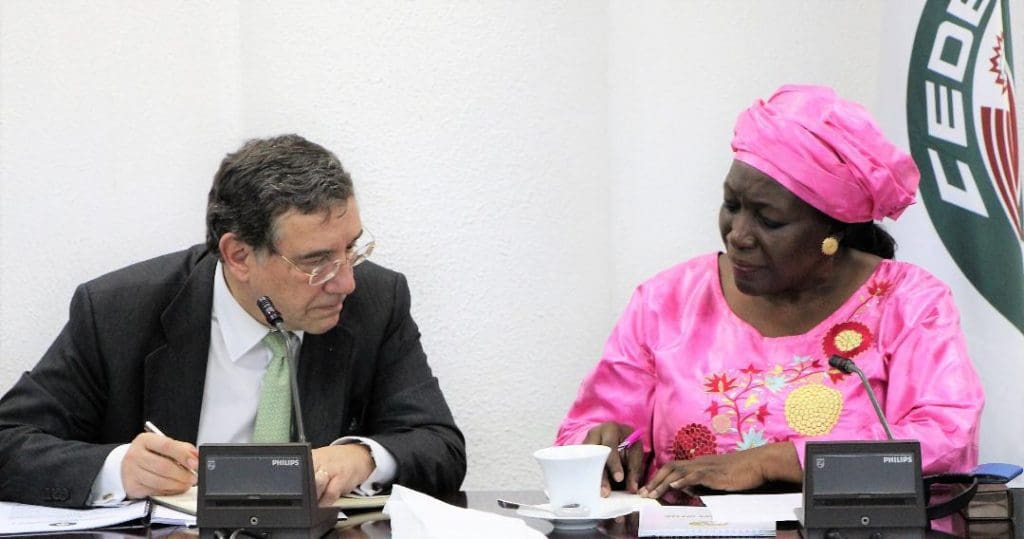The ECOWAS Commission and the European Union (EU) have discussed regional security and sustainable development in Abuja, Nigeria and examined the state of play of the G-5 Sahel as it relates to the provision of greater security for the citizens of West Africa through effective coordination of programmes.
A statement by the ECOWAS Commission on Tuesday in Abuja said that both parties on Monday discussed the harmonisation of efforts and joint activities as well as the engendering of a holistic approach to the identified challenges of security and development without duplication of efforts.
It added that the ECOWAS Commission’s Vice President Madam Finda Koroma stated during the discussion with the EU Special Representative Ambassador Angel Losada and his team, the importance of signing a Memorandum of Understanding (MoU) to facilitate their cooperation on G5 Sahel as enunciated.
Specifically, Vice President Koroma stressed the need to involve the G5 Sahel more optimally in the resolution of the security and development challenges of Nigeria’s North East zone even as ECOWAS will be taking a closer look at the emergency development programme of the G5 Sahel with the support of the EU having in mind the overriding need for capacity building of citizens living in the areas affected by insurgencies and terrorism.
Vice President Koroma was supported at the meeting by the ECOWAS Commission’s Commissioner for macroeconomic policy and economic research, Kofi Konadu Apraku, who reeled out the ECOWAS-Sahel strategy’s main components as Food Security and resilience, education as well as peace and security backed by infrastructural and economic development.
Responding to all of the issues raised, Ambassador Losada noted that through the phases of mobilisation of resources with the EU with the view of making already developed programme to be accepted and implemented, a lot of changes had occurred regarding the identified challenges, security strategies as well as the scope of the problems.
According to the statement, both parties agreed that in the course of time and over the next meetings to be scheduled, to find common grounds in the collective efforts at building capacities for joint missions and programmes for a safer, more integrated West Africa.
GIK/APA


